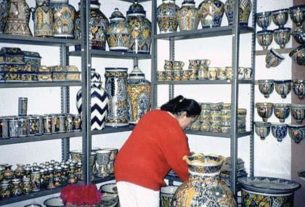I was born in a land
that has her womb
full of sunlight;
that smells of tobacco,
and the air intoxicates you
because it tastes of rum.
The sea caresses
all of her body:
it dresses her with garments
made from coral and salt.
Marisela Verena
Each year here in Guadalajara, we host an international mariachi meeting, with a musical festival and all of the rest included. I won’t stop to explain what a mariachi is, because I’m sure everybody knows what I’m talking about. By the way, that traditional musical ensemble was born here in Jalisco. Guadalajara being the capital city of Jalisco, it is natural for us to also pass as the world capital of mariachi.
Mariachis from all over the world come to celebrate the occasion every year. I’ve even had the opportunity to listen, believe it or not, to Japanese mariachis!
On September 16th we commemorate the beginning of the war of Independence of Mexico. From the evening of the 15th until the early morning of the 16th, we celebrate the Grito de Dolores, when a group of Mexican patriots, lead by Father Miguel Hidalgo, declared independence from Spain. Eleven years after the Grito, the Treaties of Córdoba, signed in 1821 in the Veracruzan city of the same name, marked the birth of the new Mexican nation.
But that is another story: another day.
It is customary in this country, and a motive for a yearly fiesta, to gather for the Grito on the evening of September 15th. Last year we decided to celebrate the occasion with a dancing and dining party, all of the personnel from our company to be invited.
On a hot noon I went to close a deal on a suitable place, dinner and music, for our Grito ceremony. Toño, the owner of La Gran Fonda and a close friend of mine, took personal care of my important business.
We focused on the tasting of a mole poblano, accompanied by freshly made white tortillas, refried beans and a nice tequila, when suddenly a mariachi arrived in the place to enliven our lunch time.
They played and sang their first song, the Son de la Negra:
“Cuándo me traes a mi negra,
que la quiero ver aquí
con su rebozo de seda
que le traje de Tepic.”
“When will you bring my negra down here,
’cause I want to see her
in her silk rebozo
that I brought her from Tepic.”
Very Jaliscoan, very well played. And then one of the musicians, boasting the purest accent from Havana, introduced us to the Mariachi Juvenil México de Cuba, the Juvenile Mariachi Mexico from Cuba.
I choked on my mole. Tequila took absolute command of my head. They executed several songs while I sang with them at the top of my voice, my tequila glass close to the ceiling. A very beautiful mulatta, projecting a privileged voice and intonation, delighted us with the deep felt stanzas,
“Creibas” que no había de hallar,
amor como el que te di;
tan al pelo lo jallé,
que hasta me olvido de ti.
“Amigos, les contaré
una aición particular:
si me quieren, sé querer;
si me olvidan, sé olvidar.”
“You thought I was not going to find
love as the one I gave you;
so soon I found it,
that I’m already forgetting you.
“Friends, I will tell you about
a particular action:
if I’m loved, I know how to love;
if I’m forgotten, I know how to forget.”
Thoughts, images, deep affections overcame me. And suddenly, not knowing how, I began to listen, for the first time in my life, to the very Cuban Son de la Loma, sung by a mariachi.
Now that was just too much, ladies and gentlemen. One of the singers of the group started to dance with one of the ladies in the restaurant. A Cuban beauty dressed as a mariachi asked me to dance with her. Of course I said, no. (Well, at least that is what I told my wife I did.)
Listening to me as I sang, as loud as I was able to,
“Son de La Loma,
y cantan en llano:
Tú verá’.
¿Cómo no?
Mamá ‘llo’ son de la Loma.
Mamá ‘llo’ cantan en llano.
Mamá ‘llo’ son de la Loma.
Mamá ‘llo’ cantan en llano.”
“They are from La Loma,
and they sing in the plain:
You will see.
How not?
Mama, they’re from La Loma.
Mama, they sing in the plain.
Mama, they’re from La Loma.
Mama, they sing in the plain.”,
and watching me move my waistline as only we who were born in the Caribbean know how to do it, the main singer from the Cuban mariachi, once they finished their performance, sat at my table.
And the compulsory question, “Are you a Cuban?”
And the hesitating conversation, full of duality (regard for the fellow countryman and distrust at the same time), the perpetual conversation, took us over. The separated and divided families, the economic problems, the fear, the tragedies, the forgetting, the remembering. The same sad, ancient-but-not-worn-out, and at the same time wanted, longed for, old conversation.
At last the mariachi singer got up, because the rest of the group was waiting for him.
And I also got myself up, back in my Mexico from fifteen minutes ago. This beautiful and beloved Mexico, to which I am so grateful. A Mexico that has welcomed me, that gave me a family and a place to be.
(But I don’t know why, the sun does not shine in the same way up here. And the ocean does not show the same colors. A wonderful country, Mexico! But it needs a little bit more of sun and salt and waist and son and tobacco and rum.)
Dumois. February 1999.

